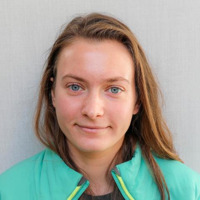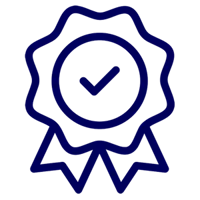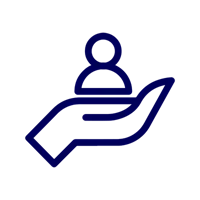
Research associate at Sainsbury Wellcome Centre, University College London
The two main traits one needs for a science career are curiosity and a growth mindset: wanting to understand how things work and constantly trying to improve. In return, you will get to elevate your mind and skills and help build the future you want.
About Ioana...
Who am I?
"My personality type results, Coach, Cordinator and Trainer, fit many of my work-related characteristics surprisingly well. I dedicate a significant amount of time to training colleagues in different techniques or to supporting them with hands-on help or advice. This is something I'm always happy to prioritise over other individual work I might have. I have a strong preference for collaboration and teamwork and I find that I am overall more enthusiastic when I'm working with others. These attributes fit qualities of all three personality types, such as working well with others, being willing to help and share knowledge, being friendly, a good listener, patient and compassionate.The organised and efficient qualities of the Coordinator and Trainer types are also evident in my work: I like to spend time planning things in detail and I enjoy structuring them by making lists, schematics and diagrams. I feel most satisfied and engaged at work when I need to find solutions for issues that myself or others are faced with, a good match for the creative and problem solver qualities of the Coach type."
What do I do?
"My work goes through a cycle of activities, including: staying up to date on my research topic by reading papers, breaking down larger questions into smaller ones and planning the right experiments to address them, performing these experiments using a variety of techniques, analysing the experimental data and collating the results, presenting these results during regular meetings and discussing them with my supervisors and colleagues and using these discussions to refine and decide the next cycle.The outcome of each cycle is an increased understanding of my research question. After a few consecutive cycles, the ideal outcome is being able to compile the findings and share them with the wider community, expanding general knowledge.What I enjoy the most is how often my problem solving skills are being challenged, from trying to find the right approach to a research question, to deciding on the best ways to analyse the data, to sorting out technical issues during the experiments. There are always new challenges and opportunities to learn a diversity of skills.As a fresh PhD graduate, the starting salary for a research associate (or postdoctoral researcher) in an academic research institution ranges between 35 and 42 K depending on the institution."
How did I get here?
"I was interested in Biology early on during my education and thus decided to undertake Biochemistry as a BSc topic in my home country, Romania. During my undergraduate studies, swayed by my Physiology professor whom I admired, I joined a Neuroscience lab for my research internship and final project. It was a very open, stimulating and encouraging environment that nurtured my interest in this field of science and motivated me to continue my studies with an MSc in Neuroscience. During this time, I had the opportunity to travel abroad and meet other scientist, become more familiar with the research in the field and finally decided to apply for PhD positions. I was fortunate to be accepted to one of my top picks and found myself in a lab in Switzerland for my PhD. Four years later, as I was completing my degree, my supervisor decided to take an offer from UCL and move the lab to London, offering me my current position as a research associate."
The life I live
"When I'm not working, I like to spend time outdoors and with friends. Being active is something I've enjoyed since I was a child and I'm often exploring and trying out new sports and activities. At home, I spend my time cooking, reading or getting absorbed by whatever new fantasy series I happened to discover, to the amusement of my partner."
My typical day
"I usually start my work day catching up with my project partner over coffee. Our work aims to understand how a specific, not very well studied area of the brain is involved in the brain's use of visual information from our surroundings. We've been working on this project for a couple of years and we're now at a stage where we are putting all the results together, using different analyses to understand the data better and be able to interpret it. In practice, this means that we divided tasks such that my colleague spends most of his time in front of the computer writing code and analysing data, while I spend more of mine doing experiments and also teaching newer lab members experimental techniques. The aim of each project is to further the understanding of a given topic, and this is achieved by compiling our findings into a scientific publication, which will then be reviewed by other scientists and eventually made available to the entire scientific community and the public."
My qualifications
"Having done most of my studies in Romania, my path might be slightly different from what would be required in the UK. The Romanian education system is organised such that at the end of highschool (18 years old), there is a national exam that everyone is required to take in order to graduate. This exam is made up of individual tests that cover some core topics, such as Maths, spoken and written Romanian, one science subject (one gets to choose between Biology, Chemistry and Physics), one humanities subject and one foreign language (spoken). The exam is compulsory in order to qualify for admission to university. Additionally, each university department decides their admission requirements based on the number of available positions and candidates. The department of Life Sciences at my university used the end-of-high school exam grade and the average of the previous four academic years as admission criteria. After completing my BSc with a written experimental thesis and something similar to a viva, I then continued my education with a MSc, where admission was also based on previous performance during the BSc and the viva results. Finally, I obtained my PhD position based on my CV and an interview with my future supervisor."



